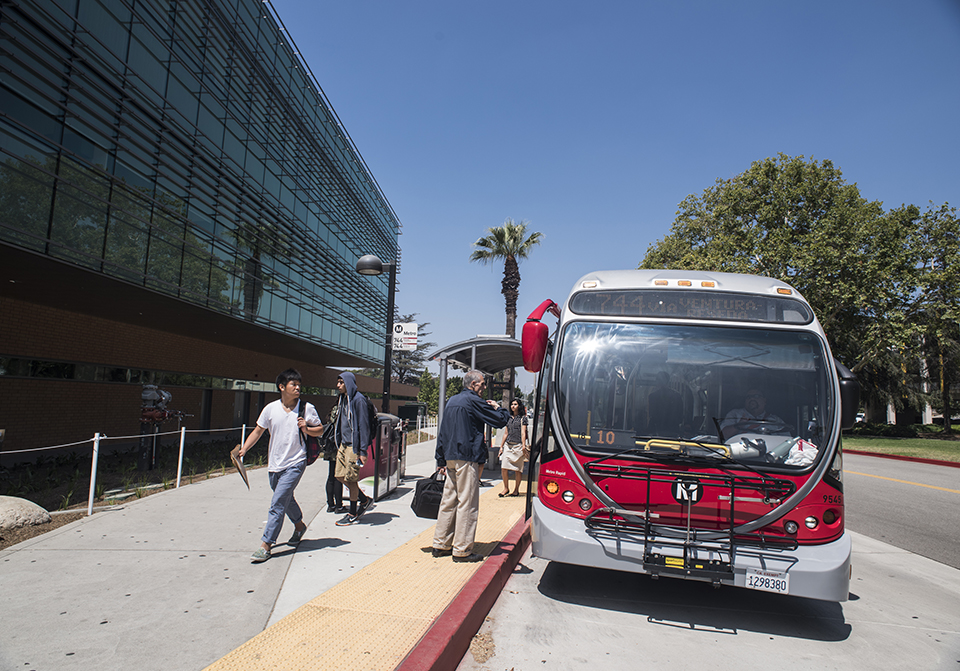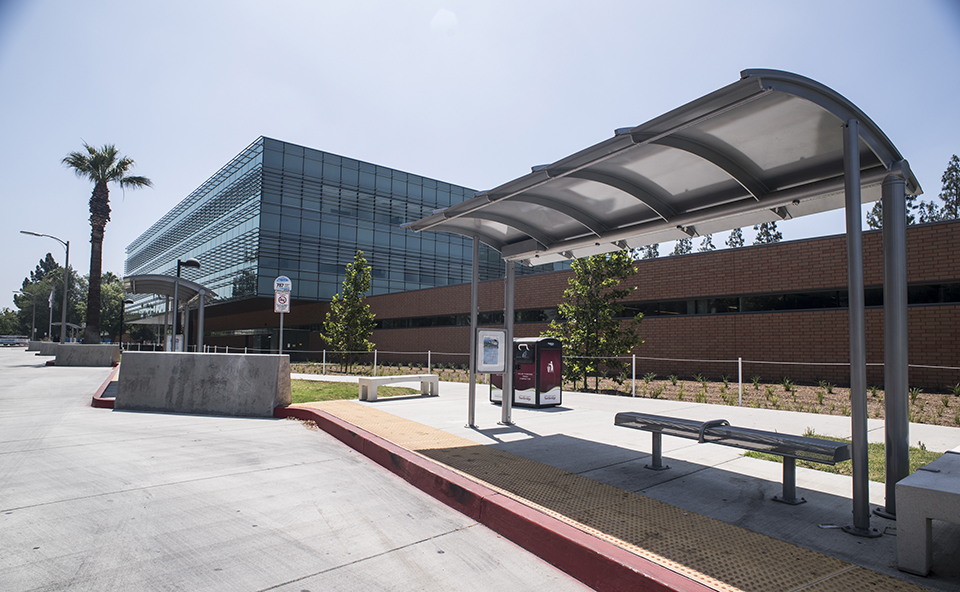Metro Transit Working Toward a More Connected North Valley for CSUN and Community
On Oct. 19, the Los Angeles County Metropolitan Transportation Authority hosted a forum on campus to solicit feedback from students, faculty and staff, and to answer questions about potential routes for the agency’s planned east-west Bus Rapid Transit (BRT) project in the North Valley. The project will connect the community with jobs, schools and essential services.
Metro is studying potential routes and station locations for the North San Fernando Valley, and agency staff are considering an 18- to 20-mile route. The BRT service is set to open between 2023 and 2025. The route options are from Nordhoff to North Hollywood, Roscoe to North Hollywood, or Nordhoff to Sylmar/San Fernando.
“What makes BRT really different from light rail is that it’s flexible and takes a number of different configurations to fit the community,” said Metro project manager Sarah Syed. “The people are really [whom] this project is working to serve, and figuring out which of these options is best going to meet people’s needs. Transportation is a lever that can enable access to opportunity.”
BRT is high-quality bus service that provides more reliable and convenient services (Metro’s very popular Orange Line is one current example). This type of bus system helps avoid most normal delays by including dedicated bus-only lanes, frequent service with limited stops, signal priority, pay stations available before boarding and more. The project is funded by LA County Measure M, a half-cent sales tax approved by voters that is funding — and will fund in coming years — a number of transportation projects and programs throughout the region. Measure M guidelines were adopted by the Metro Board in June 2017. The North San Fernando Valley BRT Project received $180 million from the Measure M pot.
Multiple CSUN departments have been working to capture the needs of students, staff and faculty. In 2016, CSUN was the first university to pilot the U-Pass, a reduced-fare transit pass offering students unlimited rides anywhere they choose on any of Metro’s bus or rail lines.
“[CSUN and Metro] have been forging relationships and working together on educating students about what is out there for them,” said Francesca Vega, assistant vice president of CSUN Government and Community Relations. “Now we’re looking at how we can maximize CSUN as a transit hub for the region.”



 experience
experience